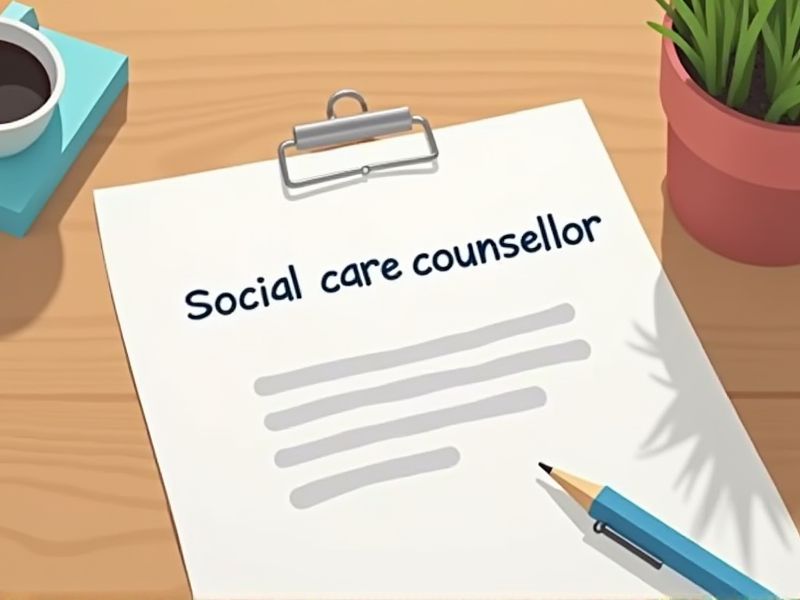
Social care counsellors work with diverse populations, often facing complex personal and societal challenges. Lack of proper certification can result in ineffective interventions and inadequate support for those in need. Certifications ensure that counsellors possess the essential skills and knowledge to navigate various psychological and social issues ethically and effectively. Key certifications help establish a foundation for competent practice in the field of social care counselling.
Registered Social Worker (RSW) Certification
Obtaining an RSW certification ensures that social care counselors meet standardized professional criteria, enhancing trust and credibility with clients and employers. The certification process involves regulatory oversight, which reduces the risk of unethical behavior in practice. It contributes to better service outcomes by requiring ongoing professional development and adherence to a code of ethics. Additionally, many employers and insurance providers mandate RSW certification for job eligibility and liability coverage, influencing career opportunities.
Licensed Clinical Social Worker (LCSW) Certification
The LCSW certification is essential for a social care counselor because it provides validation of their comprehensive knowledge in mental health and social work practices, which is crucial in delivering effective care. Holding an LCSW designation enhances credibility, making it easier to gain the trust of clients and collaborate with other healthcare professionals. It also ensures adherence to ethical standards, reducing the risk of malpractice and elevating the quality of services offered. Many states and institutions require LCSW certification to allow counselors to practice independently and receive insurance reimbursements, making it a prerequisite for career advancement.
National Certified Counselor (NCC)
National Certified Counselor (NCC) certification validates a counselor's competency through rigorous testing, ensuring they possess the necessary skills for effective social care. Certification requirements, like continuous education, lead to improved counselor knowledge and updated practices in social care settings. The NCC credential raises the credibility and trustworthiness of counselors, enhancing client confidence and promoting professional standards. Many organizations seeking qualified social care professionals prefer NCC, directly influencing employment opportunities and career advancement for counselors.
British Association for Counselling and Psychotherapy (BACP) Accreditation
BACP Accreditation ensures that a social care counsellor has demonstrated a high standard of training, ethical practice, and professionalism, which is crucial for client trust. Accredited counsellors gain access to ongoing professional development, enhancing their skills and knowledge to provide effective therapy. Many organizations and clients prefer working with accredited professionals due to their verified competence and commitment to ethical standards. Accreditation also supports career advancement by differentiating counsellors in a competitive field.
Certificate IV in Community Services
A Certificate IV in Community Services equips individuals with foundational skills in communication and interpersonal interaction, essential for effective social work. As community services often require an understanding of diverse cultural and social perspectives, this certification ensures counsellors are prepared to address a wide range of client needs. Comprehensive training in ethical practices and confidentiality provided by the certificate supports adherence to industry standards. The qualification serves as a recognized credential, bolstering employment opportunities by validating expertise in the community services field.
Diploma in Counselling and Psychotherapy
Social care counsellors require a Diploma in Counselling and Psychotherapy because it provides a structured understanding of human behavior and mental health challenges. This qualification equips them with essential therapeutic techniques necessary for addressing clients' psychological needs. It also ensures adherence to professional and ethical standards, fostering trust and safety within the counselling relationship. This education enhances their ability to assess, plan, and implement effective interventions for diverse client issues.
Certified Clinical Mental Health Counselor (CCMHC)
Certified Clinical Mental Health Counselors (CCMHC) are vital in social care counseling due to their specialized training in assessing and addressing complex mental health issues, ensuring comprehensive care. Their certification provides a recognized standard of expertise, which bolsters trust and confidence among clients and employers. The extensive understanding of evidence-based therapies they possess enables them to effectively assist diverse populations facing various mental health challenges. Their knowledge of ethical practices and legal standards helps safeguard both client welfare and organizational accountability.
Certificate in Trauma-Informed Care
A Certificate in Trauma-Informed Care equips social care counselors with the skills to recognize and understand the widespread impact of trauma on clients' lives. Comprehensive training enhances the counselor's ability to create a safe and supportive environment, which fosters trust and engagement. This education enables professionals to respond effectively to trauma-related behaviors, reducing the risk of re-traumatization. Knowledge gained from such certification supports the development of more personalized and empathetic treatment plans, improving overall client outcomes.
Certified Addiction Counselor (CAC)
Becoming a Certified Addiction Counselor (CAC) equips social care counselors with specialized knowledge to effectively address substance abuse issues. This certification ensures a comprehensive understanding of addiction's complexities and its impact on an individual's mental health. With CAC credentials, counselors are better prepared to develop tailored intervention strategies that promote sustainable recovery. Furthermore, the credential enhances credibility and trust, vital for fostering productive client relationships.
Certificate in Family Therapy
Obtaining a Certificate in Family Therapy enhances a social care counselor's skills in addressing complex family dynamics, leading to more effective interventions. This certification equips counselors with specialized techniques to facilitate communication and resolve conflicts within families. Understanding family systems theory through formal training helps counselors identify underlying issues that may not be apparent in individual sessions. Social care agencies often require or prefer certification to ensure high-quality support for families facing challenges.
Summary
You can expect significant improvements in your credibility and trustworthiness among clients when you attain certifications as a social care counselor. This enhanced professional reputation often leads to increased client referrals and opportunities for career advancement. Your advanced skills and specialized knowledge, validated by certifications, can improve client outcomes and satisfaction. Employers are more likely to view you as a valuable asset, potentially resulting in better job security and compensation.
